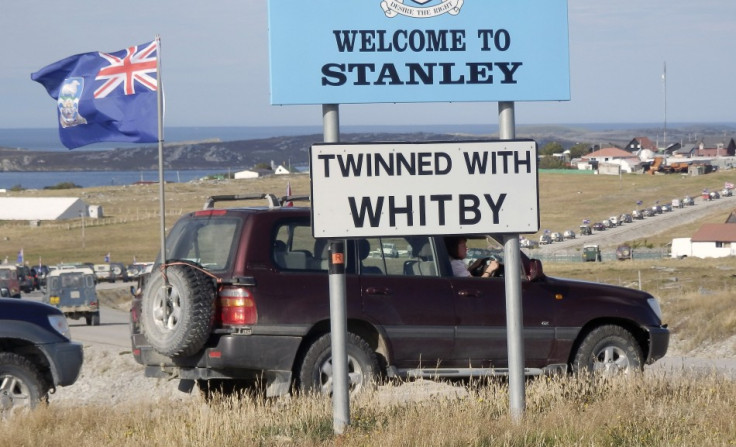Falklands: Can Britain Still Defend the Islands from Argentina?

As Anglo-Argentinian tensions rise again in the run-up to the 30th anniversary of the Falklands War, serious questions surround the United Kingdom's ability to defend the islands in the worst case scenario.
With the war of words between Argentina and Britain seeing accusations of colonialism and military aggression being hurled at one another, some fear this verbal battle could turn into a real one.
The overwhelming majority of Falkland Islanders want to remain a British overseas territory, but Argentina continues to stake its questionable claim to the archipelago of islands.
Argentina is accusing Britain of stoking the fire by sending a government minister, Prince William on a military exercise, and a nuclear warship to the islands.
Britain denies there is a nuclear warship in the area and maintained that the Prince's visit was part of a routine military drill, not an antagonistic move.
If this diplomatic row explodes into another full-blown conflict over the small group of islands in the South Atlantic, Britain will have a duty to defend them.
However, Britain lives in the context of defence budget cuts and stretched armed forces that are already committed to conflicts in the Middle East.
Ministry of Defence officials are having to shave around £4bn from the defence budget.
Margaret Thatcher, prime minister during the Falklands War in 1982, was warned by senior foreign office officials that cuts to their budget she was pursuing at the time could spark a war with Argentina.
"Any reduction would be interpreted by both the [Falkland] Islanders and the Argentines as a reduction in our willingness to defend them," Lord Carrington, Thatcher's foreign secretary, told her.
A recent report by the defence select committee into Britain's role in Nato's Libya operations questioned the country's capability of defending its overseas interests in the future.
"We consider that the Libya operation raises important questions as to the extent of the United Kingdom's national contingent capability," James Arbuthnot MP, chairman of the committee, said.
"The government needs to review our capacity to respond to concurrent threats. This work should be conducted as a matter of urgency."
Matt Ince, of the security thinktank the Royal United Services Institute, thinks it is unlikely that there will be another conflict over the Falklands.
"At present, neither Argentina or the UK necessarily has the stomach for tensions to escalate into armed conflict," Ince told International Business Times UK.
The latest resurrection of tensions is just politicking by Argentina's president, Cristina Fernández de Kirchner, as she tries to "ensure she maintains a political grip over Argentina", he said.
"It is all political rhetoric."
There is not a comparative military situation on the Falkland Islands to 1982.
"The islands themselves are very well defended with Mount Pleasant, the airbase there," Ince said.
"They have surface-to-air missiles, they have four Typhoons [fighter jets] - the comparison is very difficult to make because the orientation of our armed forces are now completely different to before.
In addition to the islands being well defended, Ince said it is unlikely that Argentina would be able to recapture them.
A bigger problem than the potential for a military conflict is the threat to British trade and diplomatic relations with other Latin American states, he argued.
"For the UK, the big question is to what extent are countries within the region prepared to go along and support Argentina's position," he said.
"A lot of them do not necessarily agree with Argentina's Falklands policy, it is just the case that humouring President Kirchner on the subject is simply the easiest diplomatic course to take to keep Argentina on side in regional forums."
Falklands Tension Soars as MPs Plan to Fly out
Falklands War of Words Breaks out between UK and Argentina
© Copyright IBTimes 2025. All rights reserved.






















